|
Columnist Max Freedman followed the march with a ringing endorsement of Martin Luther King Jr.’s oratory prowess on Sept. 9, 1963, praising him as a “supreme orator, a type so rare as almost to be forgotten in our age.”
|
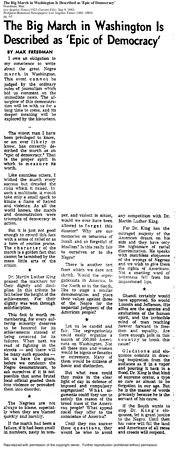
|
|
A preview published the day of the march notes a “jittery” mood in the nation’s capitol, with thousands of police officers, National Guardsmen and soldiers brought out for the event.
|
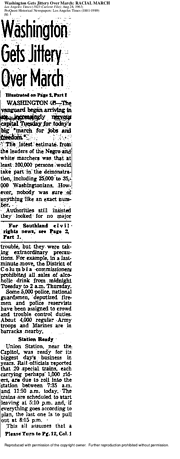
|
|
Columnist Morrie Ryskind expressed his criticisms of the march in the Aug. 28, 1963, issue of The Times, arguing that the civil rights movement had “turned into mobism and thus forfeited the sympathy of the average American.”
|
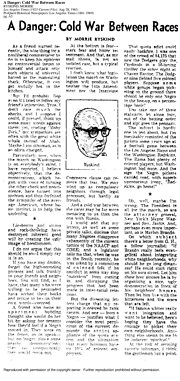
|
|
A story from the Times published Aug. 25, 1963, describes the March as a “dramatic, super-Birmingham demonstration,” and a “spectacular summer climax to the Negro revolt of 1963.”
|
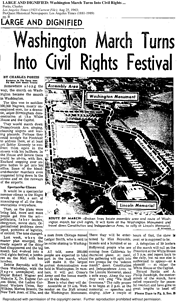
|
|
The official program handed out during the March on Washington for Jobs and Freedom on Aug. 28, 1963.
|
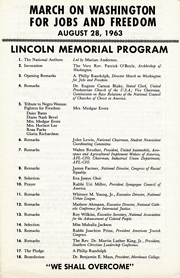
|
|
The leadership of 10 groups supporting the march, even down to the last minute, wanted to ensure that the demonstration would remain as civil as possible. “It will be orderly, but not subservient,” they declared just two days before the event.
|
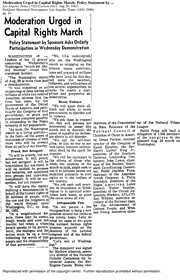
|
|
The Associated Press’ story, run by the Los Angeles Times the day after the march, interestingly doesn’t reach what is now remembered as the defining moment of the day, Martin Luther King Jr.’s “I Have a Dream” speech, until the 10th paragraph. Taking precedence were President John F. Kennedy’s response, a report on the weather and a tally of those treated at first aid tents.
|
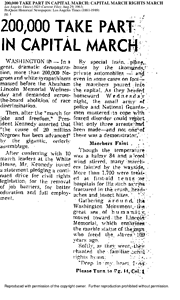
|
|
Martin Luther King Jr. was not always a near universally beloved figure. As indicated by this column from Max Freedman, published Aug. 20, 1965, some thought his stance on the Vietnam War would overshadow the goals of the civil rights moment.
|
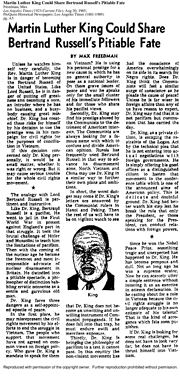
|
|
Though the march is now held in high regard, Americans weren’t so sure it would be successful. Just 22% held a favorable view of the march before it began, compared with 63% who thought unfavorably. Of those, 8% predicted violence, and 17% expected it to accomplish nothing.
|
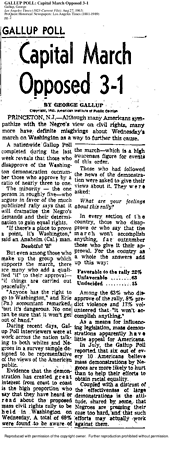
|













